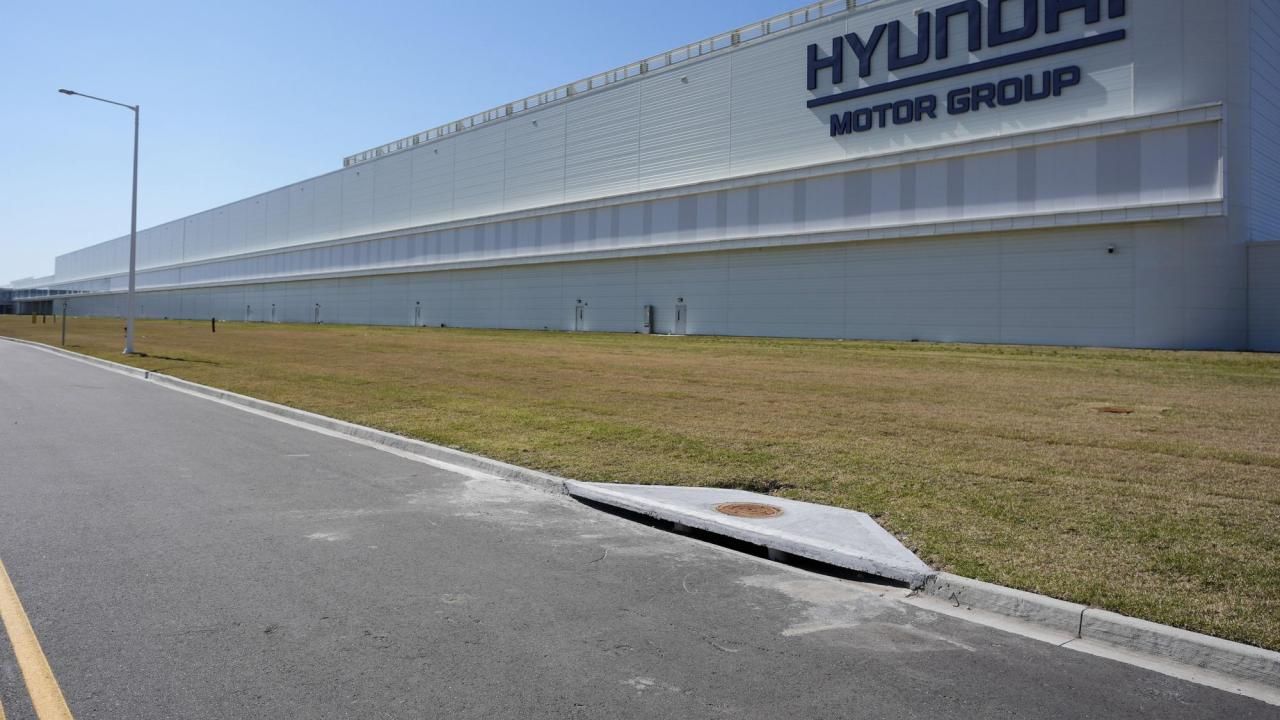
NGOCSTIP – Massive Immigration Sweep has sent shockwaves through Georgia as federal agents detained 475 individuals at a Hyundai manufacturing site. The raid, one of the largest in Homeland Security Investigations history, targeted a facility known for producing electric vehicles and building a future battery plant. Most of those detained were identified as South Korean nationals, causing ripples both locally and internationally. The Homeland Security official leading the operation highlighted that the action was aimed at ensuring employment for American citizens and was not a random inspection. With Hyundai investing $7.6 billion in this venture, the impact of the sweep has extended far beyond the plant walls, prompting diplomatic responses and questions over employment practices in large-scale industrial projects.
The Massive Immigration Sweep revealed that many detained individuals held South Korean nationality. South Korea’s Foreign Ministry identified them as workers from subcontractor networks involved in the Hyundai construction project. Officials did not mention specific numbers but acknowledged that South Koreans made up a large portion of the detainees. This information triggered swift action from South Korean diplomatic representatives. Envoys from the embassy in Washington and the consulate in Atlanta traveled to the scene immediately. Authorities raised concerns about possible violations of business rights and legal protections for these foreign workers. South Korean diplomats pressed U.S. counterparts for transparency and fair treatment throughout the legal process. Meanwhile, U.S. officials defended their actions and emphasized adherence to standard investigative procedures. Tensions between legal enforcement and international business relations continued to intensify as the case developed. Both nations now face pressure to manage the incident without escalating political or economic fallout.
“Read about: 17+8 Demands, 6 Deaths, and Counting: Indonesia’s Government Faces a Ticking Time Bomb”
Hyundai and LG responded quickly after news of the Massive Immigration Sweep spread across media platforms. LG emphasized employee safety and confirmed it gathered all available details while working closely with law enforcement. Hyundai chose to remain quiet, which raised more questions about their stance on the unfolding situation. Company spokespersons said the electric vehicle plant kept running normally during the entire incident. They also confirmed a temporary pause in construction at the nearby battery facility. This delay complicates a project already facing pressure from media and regulatory scrutiny. Both Hyundai and LG view the battery plant as crucial for expanding in the U.S. electric vehicle market. The battery facility aims to begin operations next year and boost domestic EV production. Their investment reflects long-term plans to dominate the growing American clean energy sector. All eyes now watch how the companies handle ongoing investigations and maintain their U.S. ambitions.
The Department of Homeland Security launched the Massive Immigration Sweep after a long investigation involving unlawful employment allegations. Agents executed a search warrant at the 3,000-acre industrial site near Savannah, targeting the battery plant area specifically. Community members and former workers provided multiple leads over several months that supported this focused enforcement operation. ICE officials stated they aimed to dismantle illegal labor networks linked to rapid industrial growth in the region.
Federal investigators monitored the site closely and identified patterns suggesting systemic labor violations across subcontractor networks. Legal analysts believe the companies may face large penalties if authorities prove violations of employment laws. The investigation reflects growing concern about corporate hiring practices within major infrastructure projects nationwide. No criminal charges exist yet but officials warned that developments could unfold rapidly in the coming days. Federal teams remain stationed in Georgia while they continue collecting evidence and interviewing key individuals. This situation highlights the increasing intersection of immigration law enforcement with large-scale economic development projects.
“Read more: Tears Incoming: Messi Plans His Last Dance with Argentina in the Qualifiers”
Public and diplomatic reactions to the Massive Immigration Sweep continue to evolve. South Korea has expressed deep concern over the treatment of its nationals and emphasized the need for fair legal procedures. Government officials have warned that investor confidence could be affected if foreign companies feel unfairly targeted by U.S. enforcement actions. In Georgia, public sentiment is divided. Some local residents support the crackdown, viewing it as a means to preserve job opportunities for Americans. Others, however, worry that such operations may tarnish the state’s reputation as a hub for international investment. The balance between law enforcement and economic growth remains delicate, especially when foreign nationals are involved in high-profile infrastructure projects.